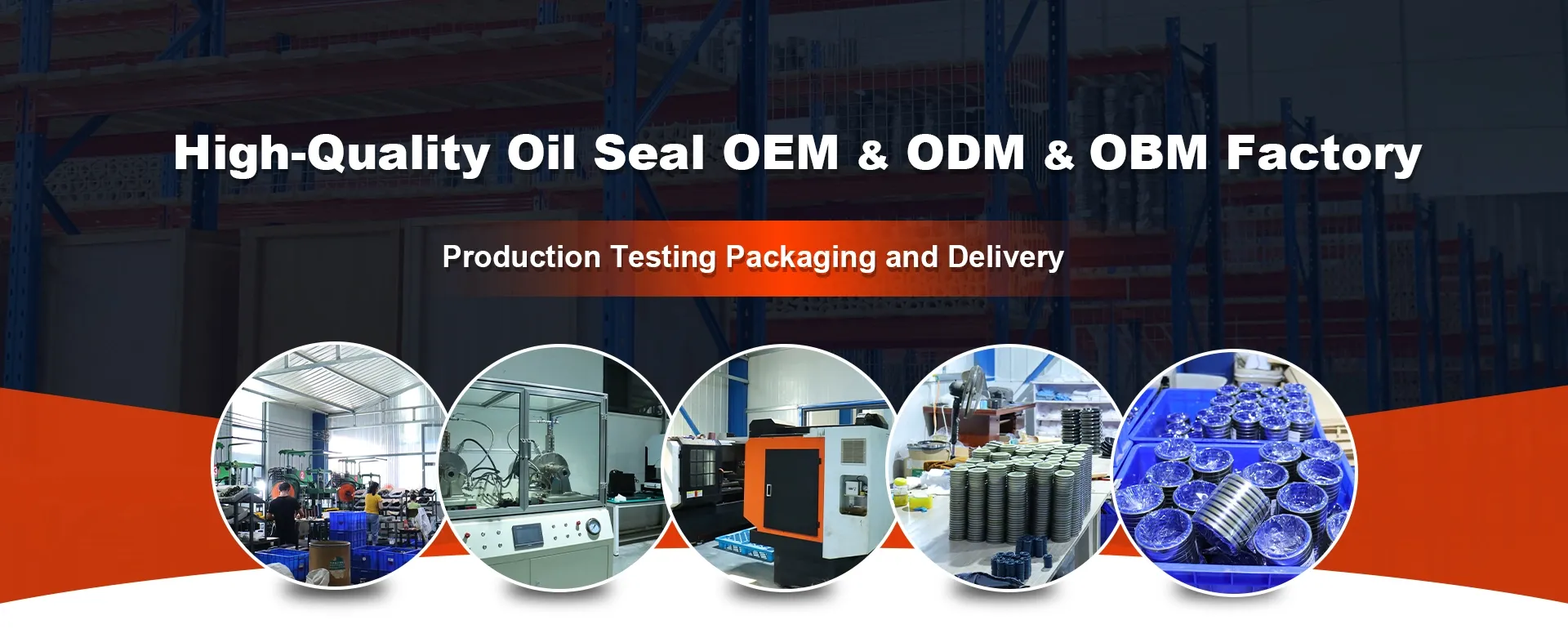Sep . 05, 2024 07:19 Back to list
High-Quality Hydraulic Oil Seals for Reliable Performance
Understanding Hydraulic Oil Seals Essential Components for Fluid Power Systems
Hydraulic oil seals are critical components in hydraulic systems, designed to prevent the leakage of hydraulic fluids while ensuring the efficient operation of machinery and equipment. These seals serve multiple purposes, including maintaining pressure, protecting components from contaminants, and enhancing the overall performance and longevity of hydraulic systems.
At its core, a hydraulic oil seal is typically made from a variety of materials, such as rubber, polyurethane, or special thermoplastics. The choice of material often depends on the specific application, operating temperature, pressure, and the type of hydraulic fluid used. For instance, Nitrile rubber (Buna-N) is commonly used for its excellent resistance to petroleum-based fluids, while Fluoroelastomers (e.g., Viton) are preferred for high-temperature applications due to their superior chemical resistance.
The primary function of hydraulic oil seals is to create a barrier between two components, preventing oil from leaking out of the system and contaminants from entering
. This is particularly crucial in hydraulic cylinders, motors, pumps, and other machinery where fluid pressure is essential for operation. A well-designed seal ensures optimal performance by minimizing friction and wear, thus prolonging the life of the equipment.hydraulic oil seal

Additionally, the design of hydraulic oil seals is tailored to withstand different operating conditions. For example, some seals have a lip that can adjust to varying pressures, while others may have spring-loaded designs that enhance sealing capability under dynamic conditions. The right seal design can significantly impact the efficiency of the hydraulic system, reducing energy loss and improving overall efficacy.
Regular maintenance and inspection of hydraulic oil seals are vital for preventing unexpected failures. Over time, seals can become worn, cracked, or distorted due to factors such as temperature fluctuations, pressure spikes, and exposure to aggressive chemicals. Identifying and replacing damaged seals promptly can prevent costly downtime and repairs, ensuring that hydraulic systems remain operational.
In conclusion, hydraulic oil seals are indispensable components in the world of fluid power. They play a crucial role in maintaining the pressure and integrity of hydraulic systems while safeguarding against contamination and wear. Choosing the right material and design is essential for ensuring optimal performance and longevity, making it imperative for manufacturers and engineers to understand the specifications and requirements of hydraulic oil seals for their specific applications. Regular maintenance and proactive management of these seals can contribute significantly to the reliability and efficiency of hydraulic systems, ultimately leading to improved performance and reduced operational costs.
-
Wiper Oil Seal: Our Commitment to Clean Hydraulics
NewsAug.13,2025
-
Hydraulic Oil Seal for Self Discharging Cars
NewsAug.13,2025
-
Hub Oil Seal for Agricultural Tractor Hubs
NewsAug.13,2025
-
Skeleton Oil Seal with NBR Material
NewsAug.13,2025
-
Rotary Lip Seal for High Pressure Applications
NewsAug.13,2025
-
Cylinder Seal Kits Our Legacy of Hydraulic Trust
NewsAug.13,2025
-
Unlocking the Potential of Hydraulic Systems with Essential Sealing Solutions
NewsAug.06,2025
Products categories
















